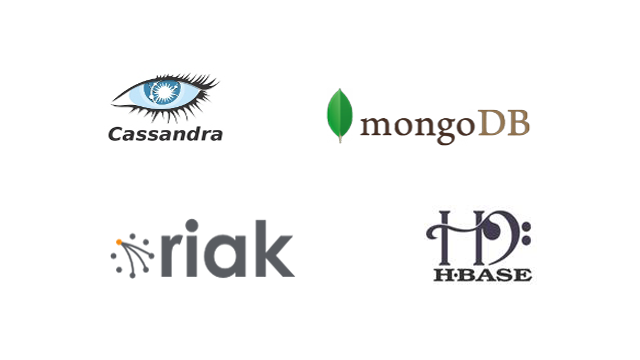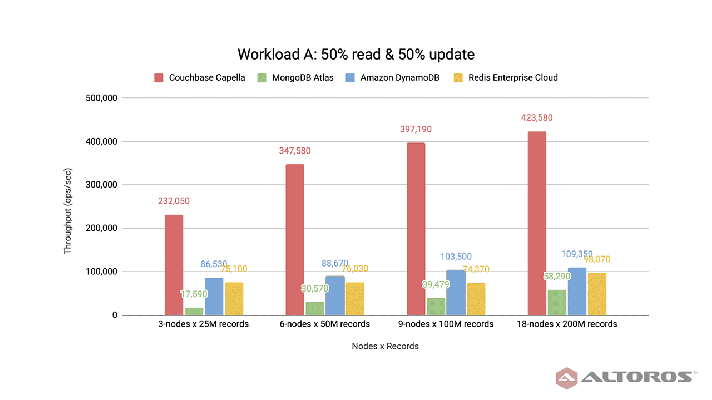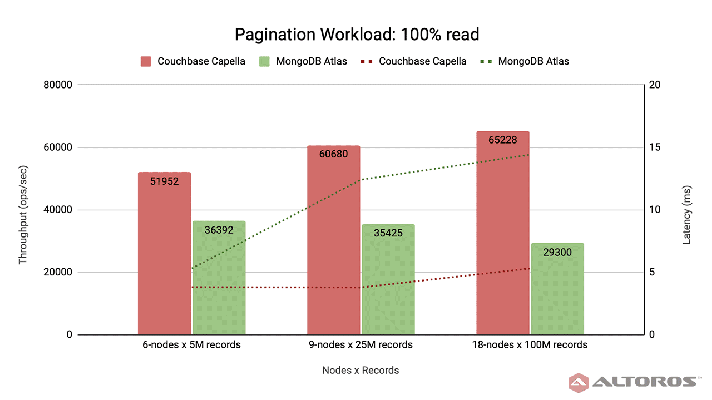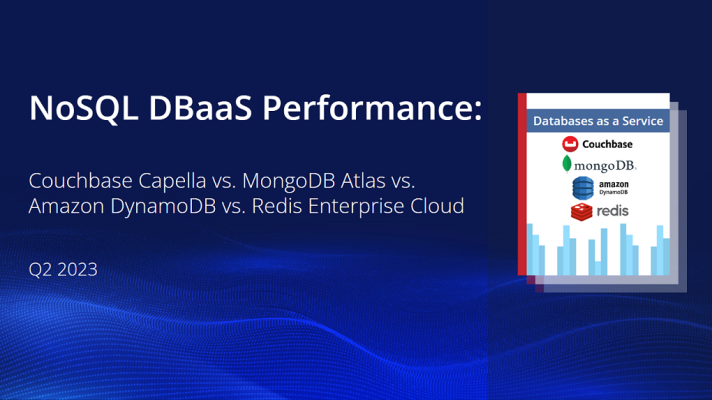A Vendor-Independent Comparison of NoSQL Databases: Cassandra, HBase, MongoDB, Riak

Unbiased research by Altoros
 In 2010, when the world became enchanted by the capabilities of cloud systems and new databases designed to serve them, a group of researchers from Yahoo decided to look into NoSQL. The results were published in the paper, “Benchmarking Cloud Serving Systems with YCSB.” The Yahoo team did a great job, but like any paper, it could not include everything.
In 2010, when the world became enchanted by the capabilities of cloud systems and new databases designed to serve them, a group of researchers from Yahoo decided to look into NoSQL. The results were published in the paper, “Benchmarking Cloud Serving Systems with YCSB.” The Yahoo team did a great job, but like any paper, it could not include everything.
 In 2012, the number of NoSQL products reached 120+, and the figure is still growing. This variety makes it difficult to select the best tool for a particular case. Database vendors usually measure productivity of their products with custom hardware and software settings designed to demonstrate the advantages of their solutions.
In 2012, the number of NoSQL products reached 120+, and the figure is still growing. This variety makes it difficult to select the best tool for a particular case. Database vendors usually measure productivity of their products with custom hardware and software settings designed to demonstrate the advantages of their solutions.
 As R&D engineers at Altoros, a big data specialist, we were inspired by Yahoo’s endeavors and decided to add some effort of our own. This article is our vendor-independent analysis of NoSQL databases, based on performance measured under different system workloads. It is an unbiased research to complement the work done by the folks at Yahoo.
As R&D engineers at Altoros, a big data specialist, we were inspired by Yahoo’s endeavors and decided to add some effort of our own. This article is our vendor-independent analysis of NoSQL databases, based on performance measured under different system workloads. It is an unbiased research to complement the work done by the folks at Yahoo.
 Using Amazon virtual machines to ensure verifiable results and research transparency, we have analyzed and evaluated four NoSQL solutions—Cassandra, HBase, MongoDB, and Riak. We also tested MySQL Cluster and Sharded MySQL, taking them as benchmarks.
Using Amazon virtual machines to ensure verifiable results and research transparency, we have analyzed and evaluated four NoSQL solutions—Cassandra, HBase, MongoDB, and Riak. We also tested MySQL Cluster and Sharded MySQL, taking them as benchmarks.
The aim of this investigation is to determine the best use cases for different NoSQL products.
Read about the results of the investigation in the research paper.
Further reading
- Technical NoSQL Comparison Report 2019: Couchbase Server v6.0, DataStax Enterprise v6.7 (Cassandra), and MongoDB v4.0
- NoSQL Performance Benchmark 2018: Couchbase Server v5.5, DataStax Enterprise v6 (Cassandra), and MongoDB v3.6
- 2017 NoSQL Technical Comparison Report: Cassandra (DataStax), MongoDB, and Couchbase Server








